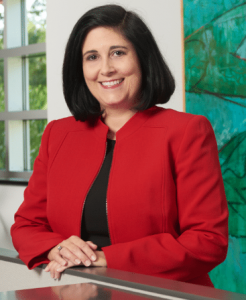Family Charitable Giving Conversations
July 24, 2017By Laird W. Green, CFP®
“We make a living in life by what we get; we make a life by what we give.” Winston Churchill
Whether a family has large wealth or has to watch each dollar they make, the education of children about money is an opportunity to teach them about values, principles, and giving back to others, whether through money, time, or both. As parents discuss money with their children—whether it is deciding to give a child an allowance, buy a new car, save for college, or donate to a local charity—it is the perfect time to begin a conversation about earning, spending, saving, and giving. Once engaged in this dialog, a family can determine their core values and principles around money and use them to create a family mission statement, or vision for the future. Crafting a vision and then a specific plan for charitable giving can ensure that every member of the family—no matter what age—is involved in the entire decision-making process.
To begin designing your family’s plan for philanthropy, work with your children to construct your family’s idea for charitable intent based upon each person’s interests, skills, and desires. You can create your family’s vision for giving by asking yourselves any (or all) of the following questions about your available resources:
1. Financial Resources: What is your family budget? How much money from the budget is available to donate to charity? What is your family estate plan? Will there be more funds to give away when the estate plan is realized in the future?
2. Intellectual Resources: What particular education, knowledge, or skills do your family members have? How can those traits lead to meaningful giving?
3. Human Resources: What are your family’s values and beliefs? What particular causes are near and dear to your family? Are there traditions that you want to continue to honor as your family makes charitable gifts? What future legacies does your family want to leave?
4. Social Resources: What interactions does your family already have in the community? On what community boards or committees are your family members serving? Are there any new relationships your family wants to establish within the community?
Having a conversation around these questions is a good way to begin honing your family’s ideals for philanthropic giving. Your family talks may reveal children’s beliefs that differ from the parents’. By working together, your family will be able to choose broad enough values and beliefs that will intertwine. These shared principles will serve as your framework for charitable giving.
After you have determined your family’s vision for charitable giving, it is time for you as parents to explore with your children the actual methods of giving you intend to pursue. Ways to give back can take many forms including social responsibility, personal fulfillment, and/or community responsibility. For example:
1. Social Responsibility: As a family, you may feel that you have more income and savings than you need to live; therefore, you feel that it is your duty to share your wealth with others. You may be compelled to make charitable contributions to help those who are struggling or who have fewer resources than you do.
2. Personal Fulfillment: Your family may feel happy when giving. You may choose to donate to charities that are close to the family’s heart, which, in turn, brings great joy and satisfaction in knowing that a particular need is being filled.
3. Strengthening the Community: Your family may choose to make donations to assist those in need to help strengthen their community and make it a better and safer place to life.
Discussing these topics with your children can help your family refine their plan for charitable giving. Whichever items appeal to your family the most will give any family an excellent way to start the dialogue about giving and begin a life of philanthropy. After your family has created their vision and made decisions about the methods to complete their financial ideals, you, as parents, and your children will be poised to achieve your goals of giving back to others through charitable means.
Laird W. Green, CFP® graduated from Furman University in 1992 with a BA in History. She received a Master of Arts in Public History and a Master of Library and Information Science from the University of South Carolina in 1997. Laird received the CFP® designation in 2002 and began working for Abacus Planning Group in 2016. Located in the Greenville office, Laird works closely with clients to understand their objectives in order to develop, implement, and monitor a comprehensive financial plan to achieve those goals.
Abacus is a financial advisory and investment counsel firm known for its passion in creating success for clients and family businesses through skillful listening and smart financial decision-making. Managing over $890 million on behalf of its 190 clients, Abacus consists of a team of multi-disciplinary experts who work collaboratively to serve its clients.





















